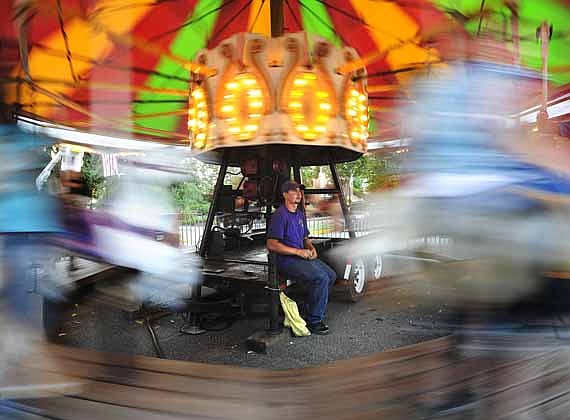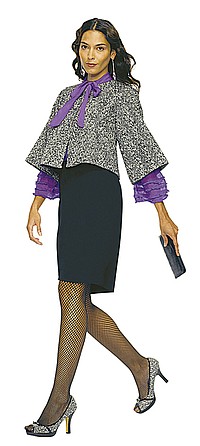Carnivals are not all fun and games.
Despite the whimsicality of humid nights riding spinning apples and elephants, the effort involved in creating the experience lies far beneath the surface.
For Jay Scooby, a second-year ride operator for Southern Fun Carnival, working at a carnival was a dream many years in the making, he said.
Scooby and the other ride operators spend May through October constructing, overseeing and dismantling the different attractions at many fairs and festivals around the state. They travel and live out of mobile bunkhouses.
After occasionally observing his father manage the colorful attractions while growing up, Scooby seized the opportunity to follow in his footsteps and take up a similar occupation.
"I didn't get to go to a lot of carnivals growing up. It's exciting to be at one every day," Scooby said.
Originally from Minnesota, Scooby enjoys the travel component of the job, as well as the opportunity to view various events around Missouri such as tractor pulls and cattle auctions, he said.
A machinist by trade, Scooby works for a construction company the remainder of the year and appreciates the engineering aspect of fabricating the various rides, Scooby said.
"You get in a routine of setting up and tearing down. It becomes easy," he said.
Despite the relative simplicity of assembling the rides, oppressive heat, thunderstorms and limited time frames add considerable challenge to the job, Scooby said.
In addition to the building aspect of the job, Scooby also relishes the unique social aspect.
The minimal time away from the ride operators, as well as other summer employees of Southern Fun, evokes a sense of camaraderie that increases the satisfaction of the job, Scooby said.
He also values the delight of the children on the rides.
"I like to see the kids smiling. It's all about the kids," he said.
Collin McKenna's summer tenure as a ride operator offers a profitable break from a year at Ozark Technical Community College, where he is currently pursuing a culinary arts degree.
McKenna is working for his sixth year as an "anything man," a job he characterized as one with both advantages and detriments.
Though his work often requires prolonged periods of labor with few breaks, it also offers a distinctively amiable work environment, according to McKenna.
As opposed to a conventional work environment, the constant companionship of the other workers provides a sense of compassion not offered elsewhere, said McKenna.
"People care about you. We work, then talk and relax together," he said.
Though occasional friction is involved in their relationships, McKenna acknowledged that their closeness is beneficial overall.
"There are times we want to fight each other, then we'll be back to laughing ... We try to look out for each other," he said.
Bunita Reinke is no stranger to the challenges and rewards of managing the many components of a successful and entertaining carnival.
Reinke's family has owned and operated Southern Fun for several years, and many generations are involved in all areas of the carnival; however, Reinke specifically manages the food booth, where her daughters and nieces assist in preparing festival fare.
Though Reinke obtains ideas for new menu items from trade shows, classic carnival foods such as corn dogs and funnel cakes remain timeless favorites, she said.
Despite the ability of Reinke's kitchen to cook 10 funnel cakes simultaneously, demand for the favorite often surpasses the number of funnel cakes ready for consumption.
"People will wait in line a long time for funnel cakes," Reinke said.
In spite of some skepticism surrounding the cleanliness of booths used to prepare festival food, Reinke's facilities undergo rigorous inspections as well as thorough scouring after each festival, she said.
"Every product is either discarded or eaten by the end of a specific festival. Most restaurants don't do that," Reinke said.
Both the fast-paced environment, family involvement and the intrigue of different towns combine to urge Reinke to continue in the family business year after year, she said.
"If I didn't like it, I wouldn't have to do it. I've tried stopping but I had to get back into it," Reinke said.


